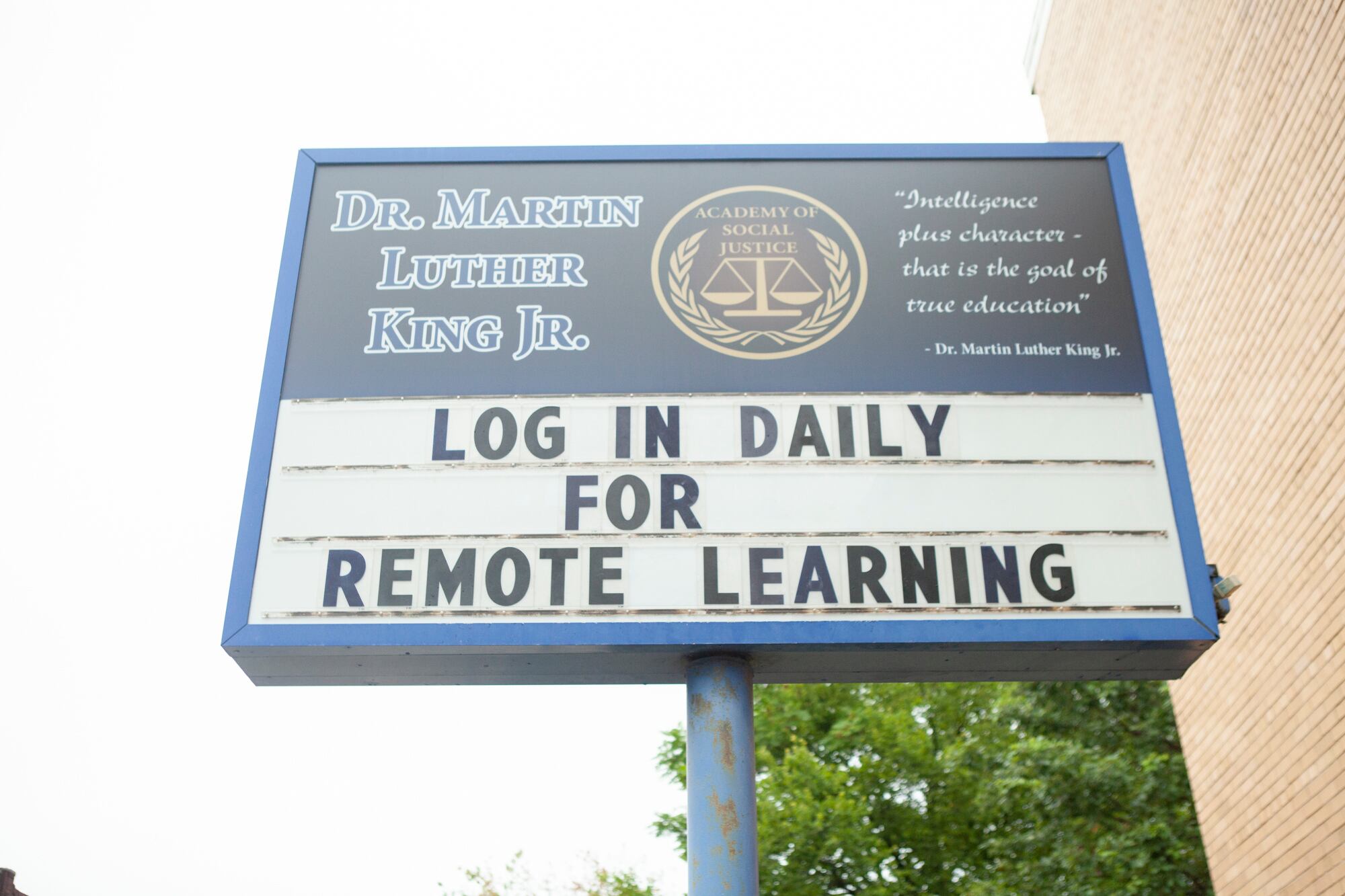Chicago Public Schools said Tuesday that it will sit down with a mediator and try to broker some details with the Chicago Teachers Union around the return to classrooms in the COVID-19 era.
But district officials made it clear they will not negotiate about whether to reopen school buildings. Union leaders wanted to provide input about any reopening decision and come to an eventual labor agreement.
Chicago has not yet announced a reopening date but has said it hoped to start phasing in instruction soon.
Whether to reopen school buildings, and how, has been a key area of contention between the two parties. Mediation offers a more measured approach to the issue, but both sides remain at odds over what particulars should be on the table.
In a letter Tuesday, Kaitlyn A. Girard, labor relations officer, wrote that the Chicago Board of Education “has no obligation to bargain its decision” and already stated its goal was a return to in-person instruction for pre-kindergarten students and some students in special education programs. The letter was addressed to Thaddeus Goodchild, the union’s deputy counsel.
Last week, a state labor court rejected the union’s request to delay the district’s school reopening plans while a labor court case on bargaining moved forward. But it didn’t rule on the case itself, saying the district must set a reopening date before it does so.
Once a mediator is selected and agreed upon by both parties, that individual will start attending bargaining sessions between the district and the union. The district said Tuesday that it has been bargaining with the union, including over its health and safety rules.
The union has alleged that the district won’t bring substantive issues around reopening to the bargaining sessions. Instead union leaders have turned to the courts, filing grievances and unfair labor practice lawsuits to try and push the district to come to a written agreement.
Mayor Lori Lightfoot and schools chief Janice Jackson have stressed the importance of reopening schools, arguing that they must weigh both the long-term academic risks to children and the health risks of COVID-19. But Chicago’s latest plan to reopen has coincided with a grim data point: a spike in COVID-19 cases that puts the citywide positivity rate at 13%. In some neighborhoods, positive rates have surpassed 20%.
Health officials have said in recent days that the citywide rise in COVID-19 cases has not had a marked impact on settings serving children, and data obtained by Chalkbeat appears to back up those assurances. But school-related data are only through Oct. 17, before the second wave of cases. The city’s health department said more recent data is not available yet.






